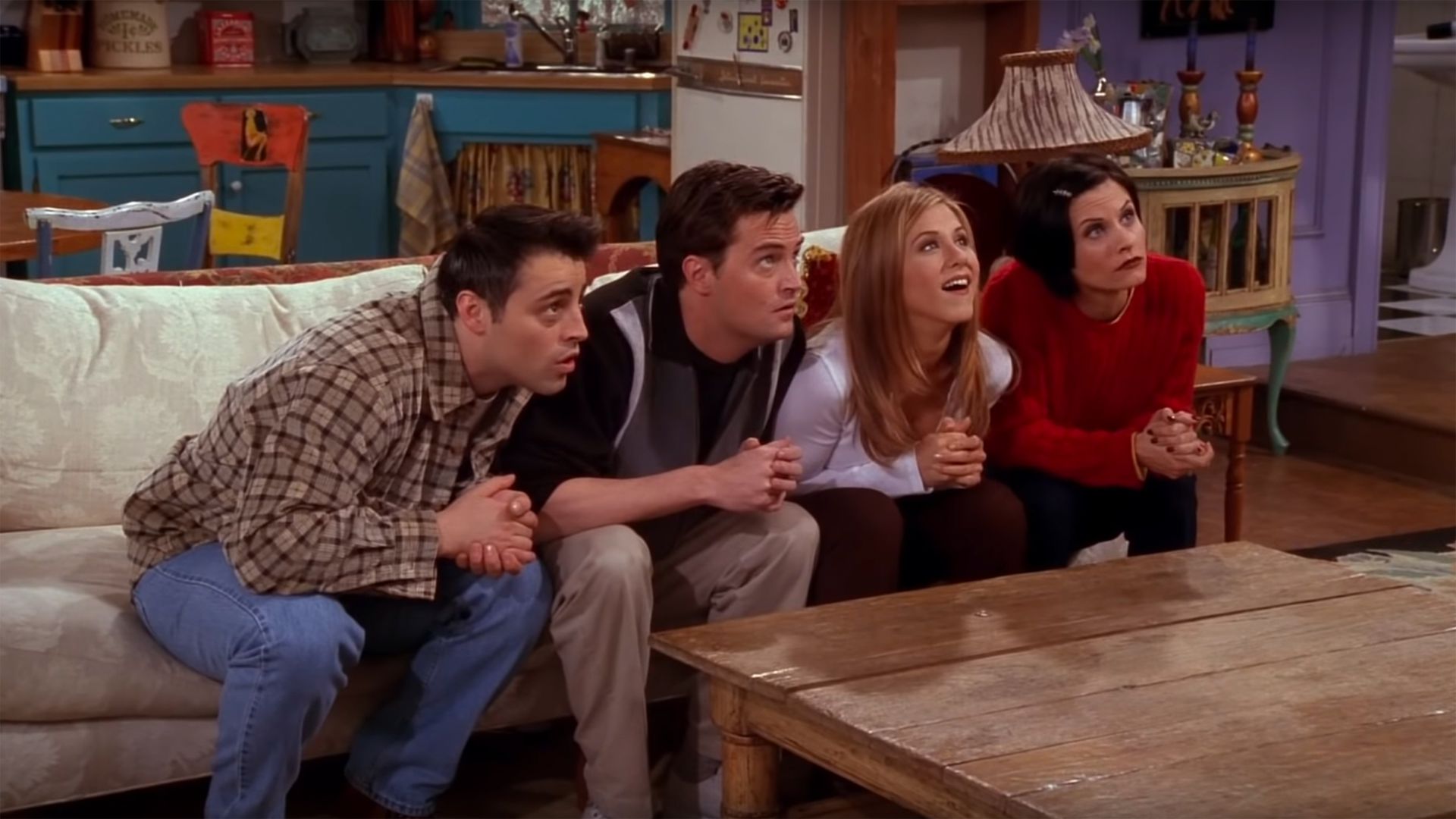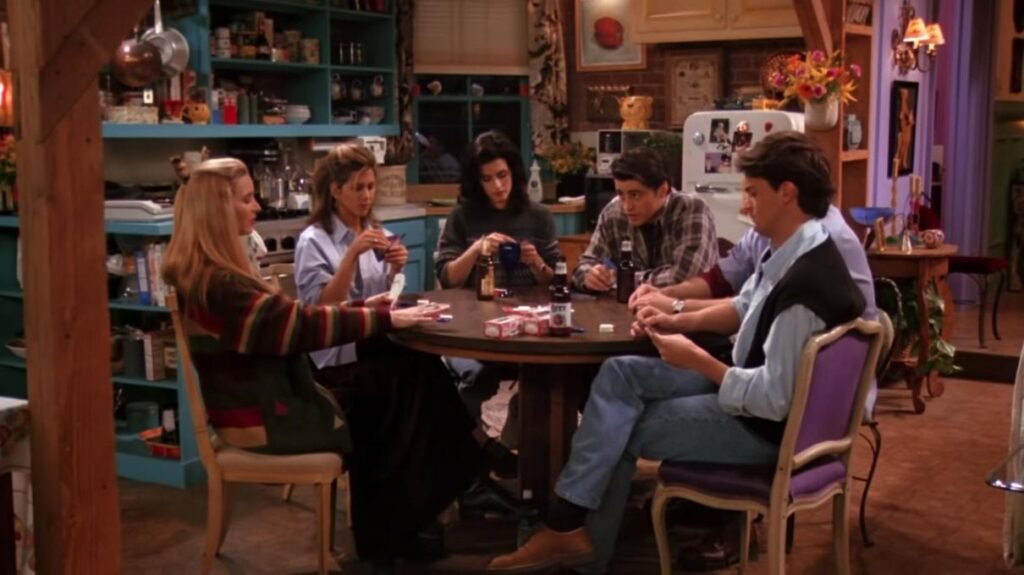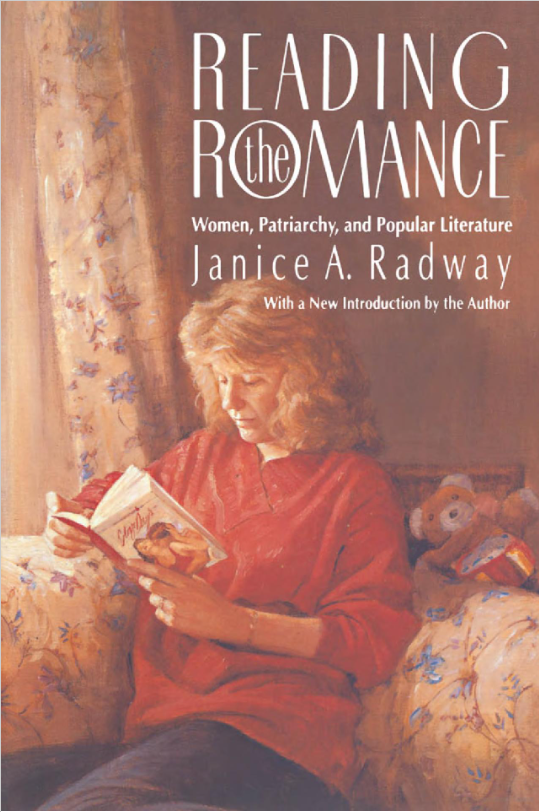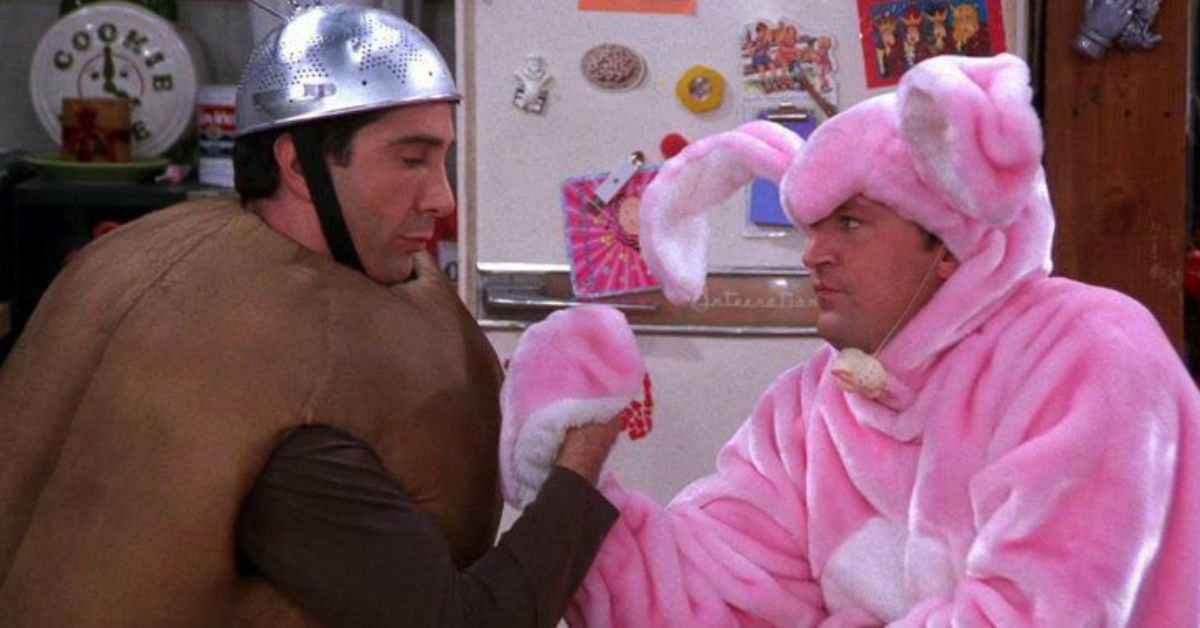It is not that common,
it doesn’t happen to every guy,
and it is a big deal

Warning: I’m about to problematize Friends. But don’t worry, it will all be fine.
My favourite series, my safe space, my comfort zone, my guilty pleasure: Friends. Who thought that the life of a group of six people who just happened to be ‘best buds’ and have enough free time to spend half of their day in a café would become one of the biggest series of all times? I first watched the whole thing when I was 12 years old. By now, I have memorized all the lines (“but they don’t know that we know they know we know”), I can picture a scene just by listening to the sound of it (“Oh my God!”) and it has become my go-to when there is nothing else to watch on Netflix, or when I’m just too anxious to try anything new.
The reason it has become such an iconic piece of popular culture is obvious: they worked hard. The script was impeccable; they worked on it in front of the live audience so every joke would be the best it could possibly be. The cast had chemistry; their timing was always great. The characters and their struggles were relatable. We all embody some of the traits of at least one of them. We’ve all faced similar problems getting into adult life: money issues, complicated relationships, family troubles, friend disagreements… We can all see a bit of ourselves in there. How could it not be the recipe for success?
Nonetheless, even while being a diehard fan, I must admit that the series not only conforms to the hegemonic societal norms, but also reinforces them by representing a very simplistic view of society. Even the most unconventional characters end up wanting to be a soccer mom (Phoebe for those who were just recently initiated to the Friends universe).

From the classic homophobic jokes to stereotypical representations on screen, watching Friends has become problematic for me over the years. The more I learn about the world, the more I see how it’s not okay to laugh at “Where are all the men?” – if your male friends want to put on makeup and arrange flowers, they should be able to do so. And even when they try to break the norm by surprising us with a male bag or Joey in panties, in the end, they always go back to conforming to their role as a heterosexual man.
Don’t worry; I’m not going to go on telling you everything that is wrong with the series. I believe in your capacity to do it yourselves. Besides, I also believe that the series breaks many taboos, especially for the time, presenting strong independent female figures, normalizing topics that were not even mentioned in the ‘90s and somewhat complex relationship dynamics. But I would like to talk more about this: is okay for me to keep on watching Friends even if I am aware of the potentially damaging representation it has?

A study by Janice A. Radway in the 1980s looked at this question through the angle of romance novels and house wives. The author’s starting point was the contradiction between the common sense of romance novels being dumb, naïve, formulaic and, overall, not very enriching as readings and their great popularity among women. The research showed that many of those who enjoy taking an adventure in amorous tales are more than dumb, naïve, passive readers -much more indeed. Reading beyond the formula of these stories, the housewives who were interviewed said they focus on the particularities between them, the different settings and characters presented, so they could use it as a tool to learn about another period or another place. It was also a moment for them to escape their daily task, escape their roles as mothers or wives and take a moment for themselves. It was a guilty pleasure whose safe ending put them in a good mood and helped with their well-being. The characters of romance novels were relatable enough for them to see themselves represented, but they were also different enough to make them dream beyond their realities enough to dare to take a break of their everyday role. How can you say then that these novels are damaging because they reproduced patriarchal dynamics if, in action, they do the very opposite?

Of course, we shouldn’t be fully embracing cultural products produced now that are still in the narrower world views of 20 years ago that wouldn’t give a voice to minorities. But you can’t just ignore when something makes you feel good. If laughing about an arm fight between a pink bunny and a space doodie makes me less anxious, then I should do it. If reading romance novels is what calms you down or makes you happy, then go ahead and read them.
This whole month we have been exposing different guilty pleasures here in public. We each confessed a little bit of our own guilty pleasures. Well, I want to close off by inviting you to scream it to the world, to show to everyone that you are not ashamed of consuming low-brow culture, no matter what it is. Because you should never be ashamed of being happy. Because, contrary to what Rachel says, it is that common, it happens to everyone and it’s really not a big deal.